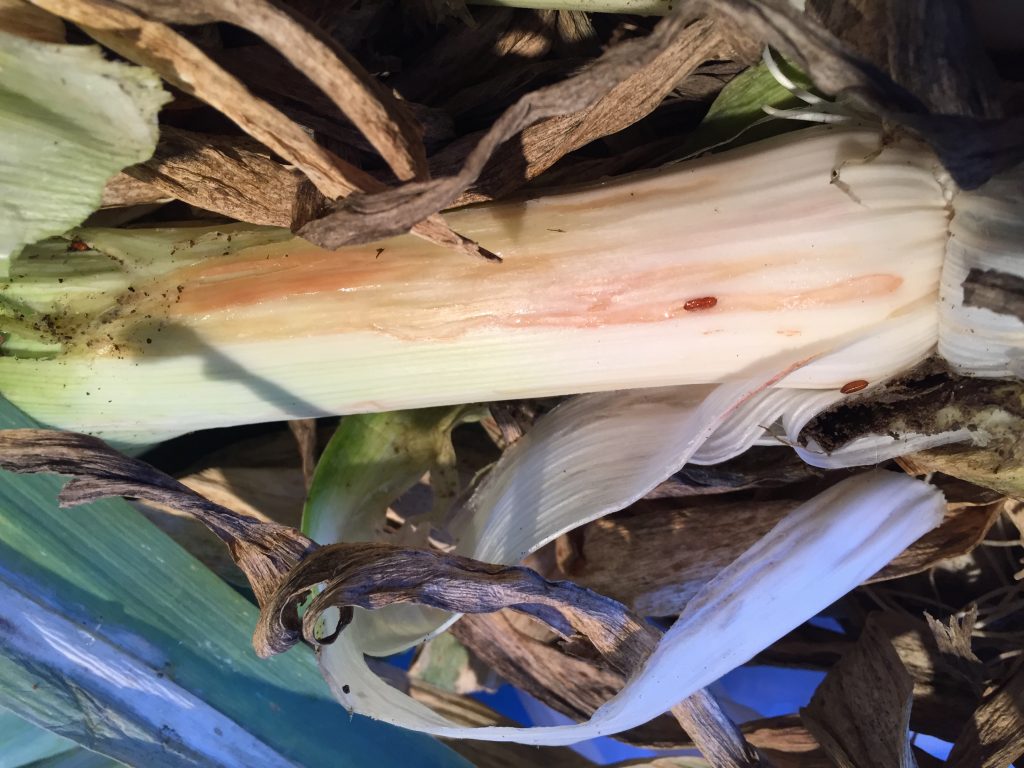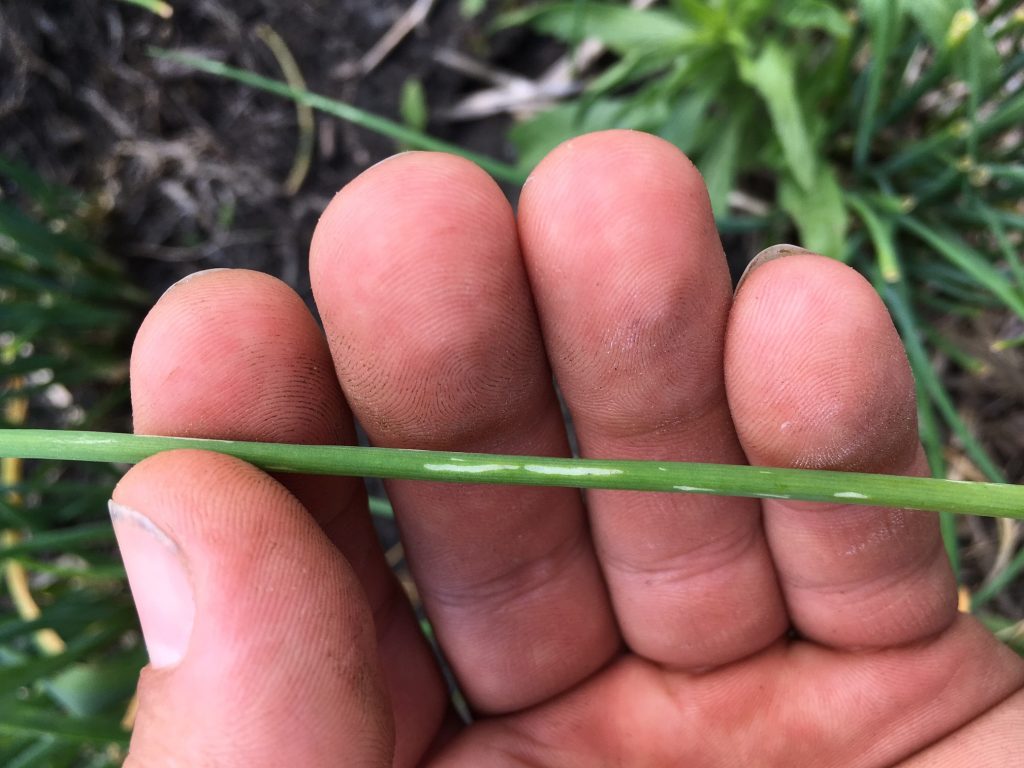Researchers are working to learn more about the Allium leafminer and to teach onion growers about the best ways to control the new pest. The Allium leafminer, Phytomyza gymnostoma Loew, is an invasive pest that has recently arrived in the eastern U.S. It attacks crops in the Allium genus such as onions, garlic, leeks, scallions, shallots and chives and is considered a major threat to producing these crops.
Originally from Europe, the Allium leafminer was first detected in Pennsylvania in December 2015 and in New Jersey and New York in 2016. High infestations of the insect were reported in onion and leek crops in New York and Pennsylvania in 2016 and 2017, and some fields suffered complete crop loss. By spring 2017, the Allium leafminer was commonly found throughout eastern Pennsylvania, eastern New York and some mid-Atlantic states. There is serious concern that this pest will continue to migrate and threaten Allium production areas in the mid-western and western U.S. and Canada.

Brown, oval-shaped Allium leafminer pupae are seen on this leek at a farm where Allium leafminer was first identified in New York last fall.
Photo courtesy Teresa Rusinek, Cornell Cooperative Extension
The Allium leafminer is most damaging as a maggot. It initially feeds within leaves, creating mines downward until it completes its development in the bulb. Feeding causes extensive damage and renders the crop unmarketable. In addition, feeding by larvae creates entry routes for bacterial and fungal pathogens to establish, which causes plants to rot. High infestations have occurred in onion and leek fields with as many as 20 to 100 pupae per plant and 100 percent of plants infested.
Currently, the industry does not have effective control tactics for Allium leafminer in the U.S. Intensive field research is needed to identify effective, practical and affordable management strategies, according to Brian Nault, an entomologist with Cornell University.
Nault is beginning a research project on the ecology and management of the Allium leafminer in order to identify immediate solutions for controlling infestations in Allium crops. In his project, he will monitor activity of Allium leafminer adults in order to develop models for predicting when to initiate scouting and deploy management practices. He will also work to identify effective insecticides to manage Allium leafminer infestations in organic and conventional production. Finally, he plans to educate Allium crop growers about the identification and biology of Allium leafminer and effective
management strategies.

Chives show mining damage caused by an Allium leafminer maggot. Photo courtesy Ethan Grundberg, Cornell Cooperative Extension